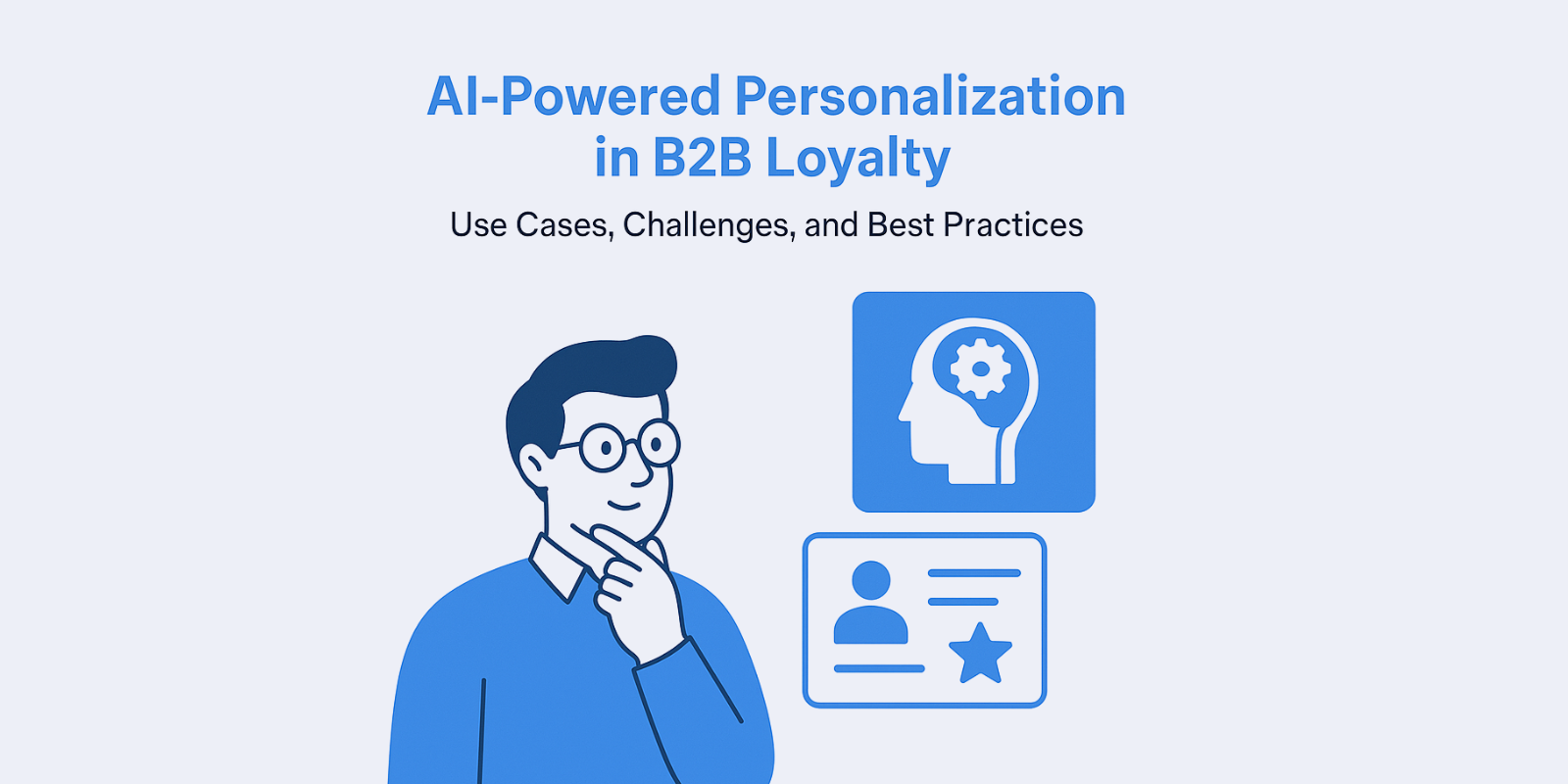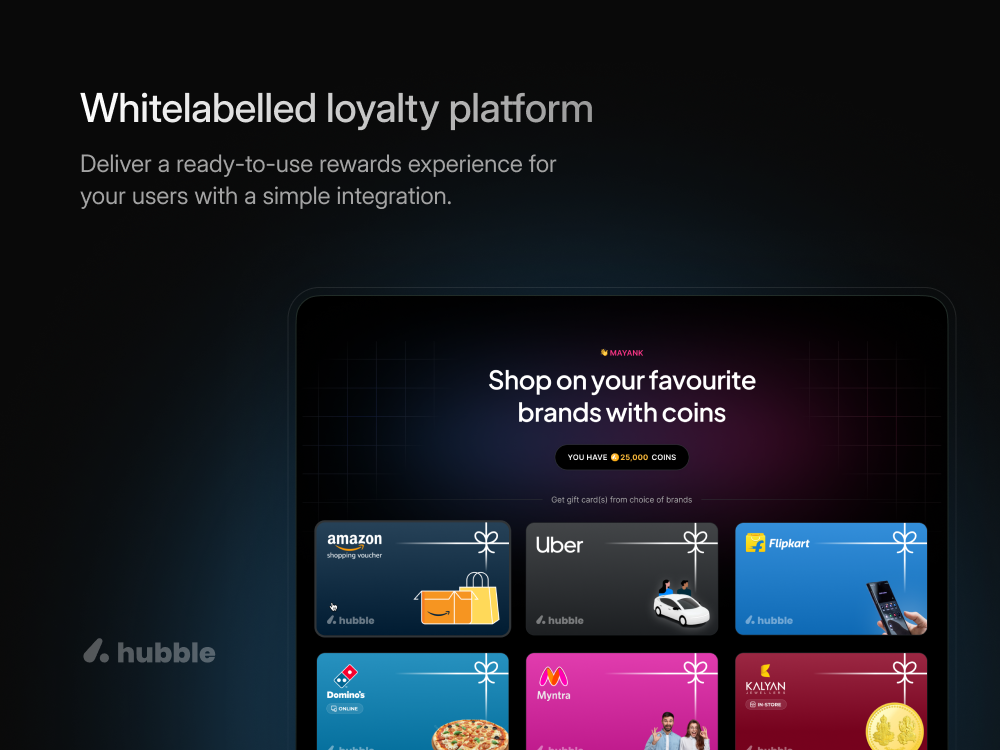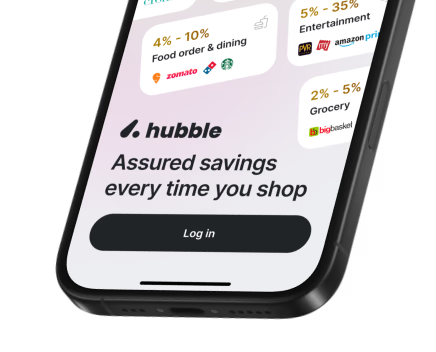AI-Powered Personalization in B2B Loyalty: Use Cases, Challenges, and Best Practices


AI-powered personalization is redefining B2B loyalty programs by enabling companies to deliver highly relevant, data-driven experiences that foster deeper customer relationships and drive measurable business outcomes.
Below is a clear overview of use cases, implementation challenges and best practices of AI Powered Personalization in B2B Loyalty.
AI-Powered Personalization in B2B Loyalty
Personalization in loyalty programs is no longer optional. In the B2B space, AI makes it possible to analyze large volumes of customer data (purchase history, engagement patterns, and even support interactions) to tailor every touchpoint.
This approach increases repeat purchases, boosts customer lifetime value, and transforms one-time buyers into long-term advocates.
Use Cases

AI enables several high-impact applications in B2B loyalty such as:
- Personalized Reward Recommendations - AI can analyze each account’s behavior and preferences to suggest rewards or incentives that are most likely to motivate further engagement. For example, a platform might recommend contract-specific pricing or feature upgrades based on past purchasing patterns.
- Automated, Contextual Communications - Triggered messages (such as reminders when a customer is close to a reward or alerts for exclusive offers) can be sent via email, SMS, or in-app notifications. These communications are tailored to each user’s activity and preferences, making them feel valued and understood.
- Churn Prediction and Prevention: By monitoring engagement signals and transaction data, AI can flag accounts at risk of disengagement. This allows for proactive outreach, such as offering tailored incentives or adjusting program structures to retain valuable clients.
- Integrated Loyalty Dashboards: AI-powered dashboards show each customer their points balance, progress toward rewards, and personalized suggestions for maximizing their benefits. This transparency encourages ongoing participation.
Implementation Challenges

Despite its promise, AI-powered personalization in B2B loyalty comes with hurdles:
- Data Integration and Quality - Siloed or inconsistent data can undermine AI’s effectiveness. Integrating CRM, support, and transaction data is essential for accurate personalization.
- Privacy and Compliance - Handling sensitive business data requires strict adherence to privacy regulations and transparent communication about data usage.
- Resource and Talent Constraints - Deploying AI solutions often requires specialized skills and a commitment to ongoing optimization and monitoring.
- Over-Personalization Risks - Excessive or poorly timed personalization can feel intrusive, damaging trust rather than building it.
Best Practices

To maximize the impact of AI-powered personalization in B2B loyalty:
- Start with Clear Objectives: Define what you want to achieve (such as reducing churn or increasing upsell rates) before selecting tools and tactics.
- Unify and Govern Data: Ensure all customer data sources are integrated and governed according to best practices, including anonymization and access controls.
- Balance Automation with Human Touch: While AI can handle analysis and routine communications, human oversight is crucial for complex negotiations and relationship management.
- Iterate and Measure: Pilot new features with small customer segments, measure outcomes (e.g., retention, engagement), and refine your approach before broader rollout.
AI-powered personalization in B2B loyalty is a powerful lever for driving retention and growth.
By combining robust data practices, ethical AI usage, and clear communication, organizations can deliver experiences that feel both personal and valuable.
Hubble can work with you to deploy loyalty programs that are engines of your business success. Talk to us now.








